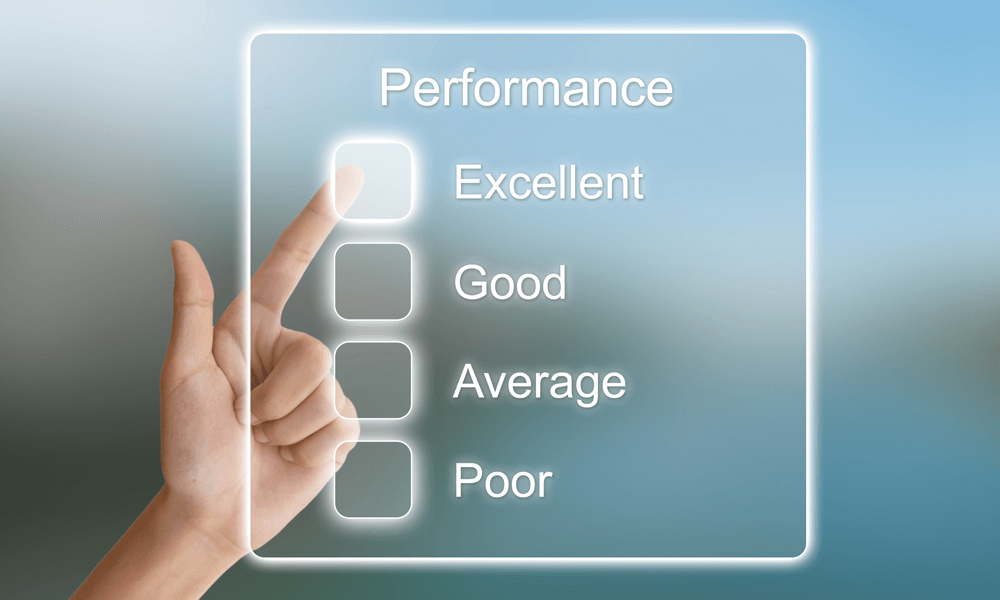How Accenture, Microsoft And Deloitte Replaced Annual Performance Reviews
2 July 2021
A number of well known companies have recently announced that they are getting rid of the dreaded annual performance reviews and revamped their review processes. Among those are Accenture and Deloitte, but they join Microsoft, Adobe, Gap, Medtronic and others in realising that the old way of conducting performance reviews is deeply flawed and ineffective.

In a survey conducted by Deloitte, it found that more than half of the executives questioned did not believe their employee review systems drove employee performance or engagement. And they’re not alone. According to a different survey, six percent of Fortune 500 companies have already replaced traditional annual performance rankings, and the number is growing.
But what do these companies use in place of old rankings systems and 360-feedback models?
The new systems generally:
- Focus on the employee in his or her own role. They no longer try to rank employees against one another or compare performance to other employees.
- Provide feedback more often. Rather than a single review once a year, the new systems tend to provide feedback more often, at the end of each major project or every quarter, for example. Deloitte has also implemented weekly check-ins with team leaders to help fuel performance.
- Require less time to complete. Deloitte is using only four questions, two of which require yes or no answers.
- Move from focusing on the past to focusing on the future. Rather than reviewing an entire year’s performance at one go, these shorter, more frequent reviews are designed to help employees move forward with their careers rather than look back on past accomplishments or failures.
- Take some of the subjectivity out of the process. One major problem with standard performance reviews is that a reviewer’s assessment of an employee’s skills says more about the reviewer than the employee. To combat this, Deloitte has changed their questions to ask what a manager would do with a person (promote them, incentivise them, etc.) rather than what they think of that person.
- Shift from a focus on employee management to a focus on fuelling employee performance. More frequent check-ins and reviews mean that a manager has more opportunities to steer an employee towards his or her best performance.
- Shift from trying for the simplest view of performance to the richest. Many review systems in the past were designed to try to simplify employee performance down to a single number — a rating or ranking. This new breed is more about generating a richer, nuanced view of every employee to facilitate better performance.
The research bears this approach out as being more effective at actually generating higher employee performance because people are no longer dwelling on what happened in the past, but instead focusing on how to improve in the future.
Related Articles
20 Game-Changing AI Tools Every Small Business Leader Needs Now
By now, “smart” versions exist of just about every home appliance, gadget and gizmos we can think of. However, manufacturers continue[...]
New Study Reveals True AI Capabilities And Job Replacement Risk
By now, “smart” versions exist of just about every home appliance, gadget and gizmos we can think of. However, manufacturers continue[...]
How Generative AI Will Affect Jobs In Restaurants And Hospitality
By now, “smart” versions exist of just about every home appliance, gadget and gizmos we can think of. However, manufacturers continue[...]
Why AI Agents Are The Missing Link Between Enterprise Ambition And Execution
By now, “smart” versions exist of just about every home appliance, gadget and gizmos we can think of. However, manufacturers continue[...]
5 Mistakes Most Businesses Will Make This Year With Sustainability
By now, “smart” versions exist of just about every home appliance, gadget and gizmos we can think of. However, manufacturers continue[...]
5 Powerful AI Prompts That Can Boost Any Business Idea
By now, “smart” versions exist of just about every home appliance, gadget and gizmos we can think of. However, manufacturers continue[...]
Sign up to Stay in Touch!
Bernard Marr is a world-renowned futurist, influencer and thought leader in the fields of business and technology, with a passion for using technology for the good of humanity.
He is a best-selling author of over 20 books, writes a regular column for Forbes and advises and coaches many of the world’s best-known organisations.
He has a combined following of 4 million people across his social media channels and newsletters and was ranked by LinkedIn as one of the top 5 business influencers in the world.
Bernard’s latest book is ‘Generative AI in Practice’.










Social Media